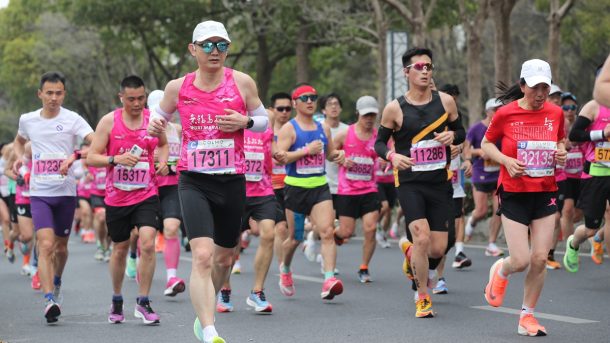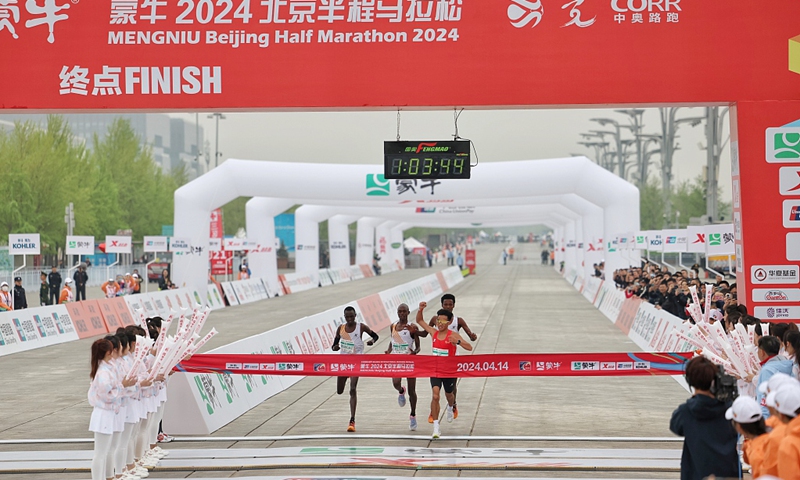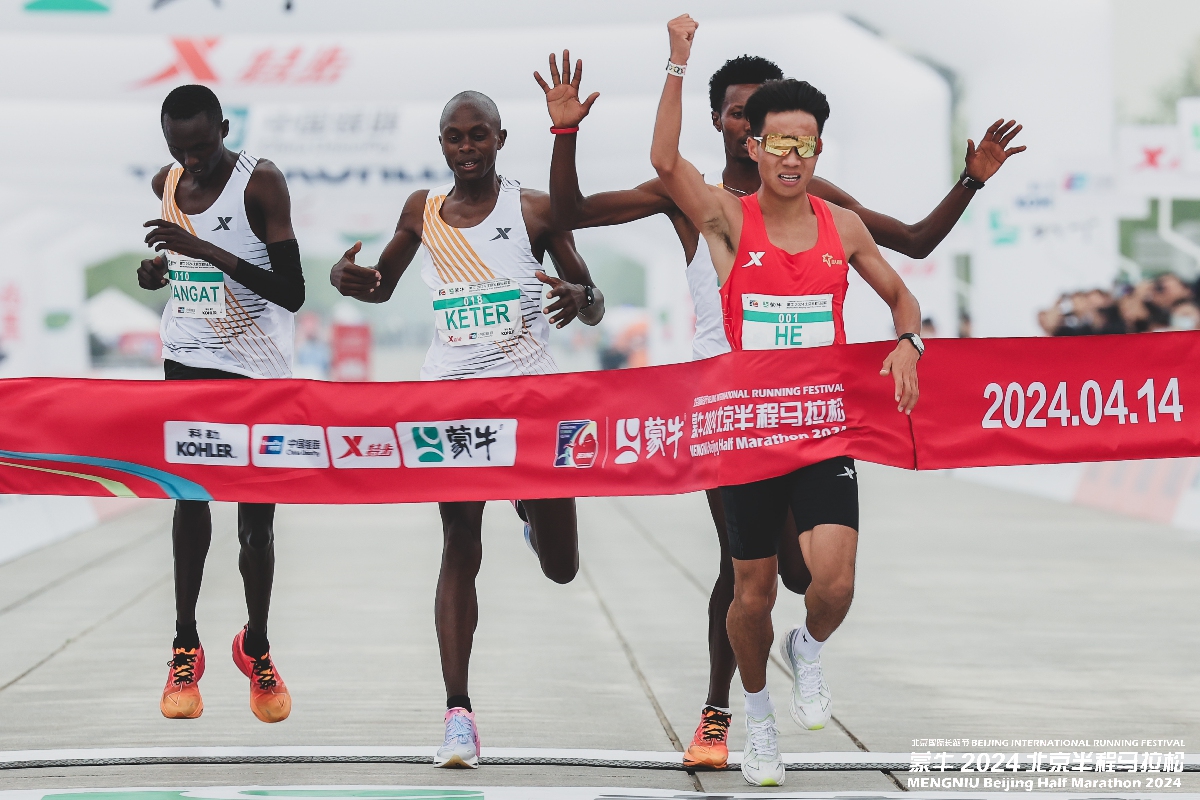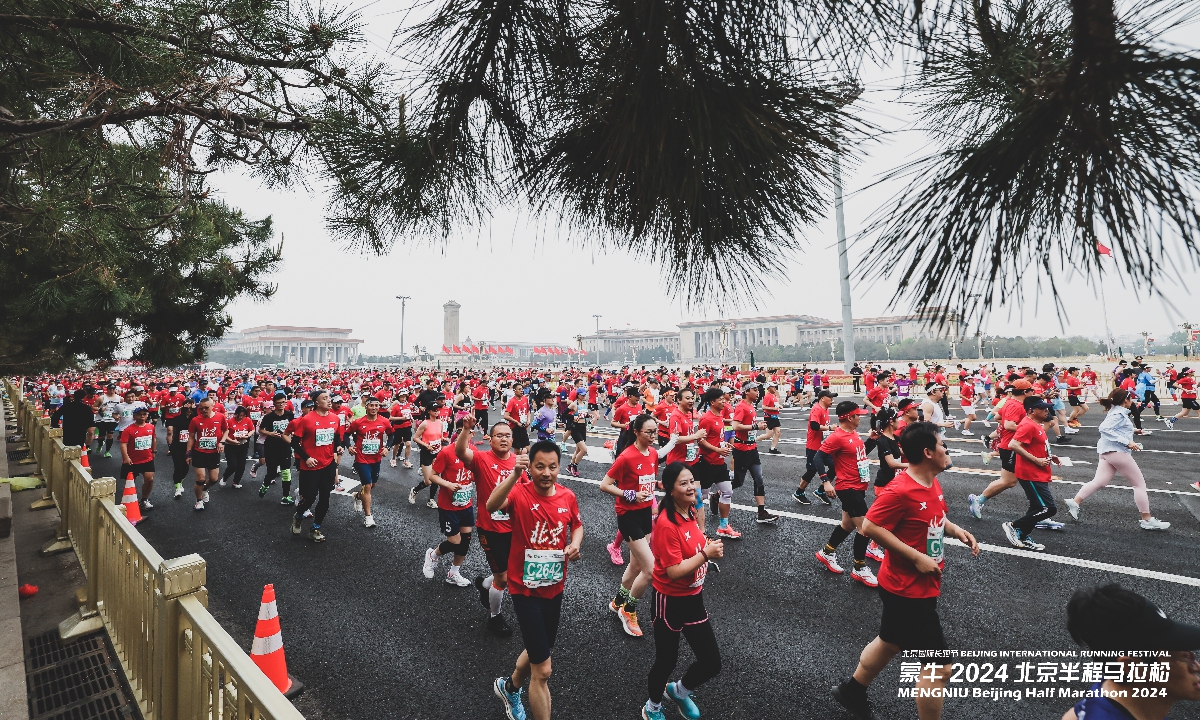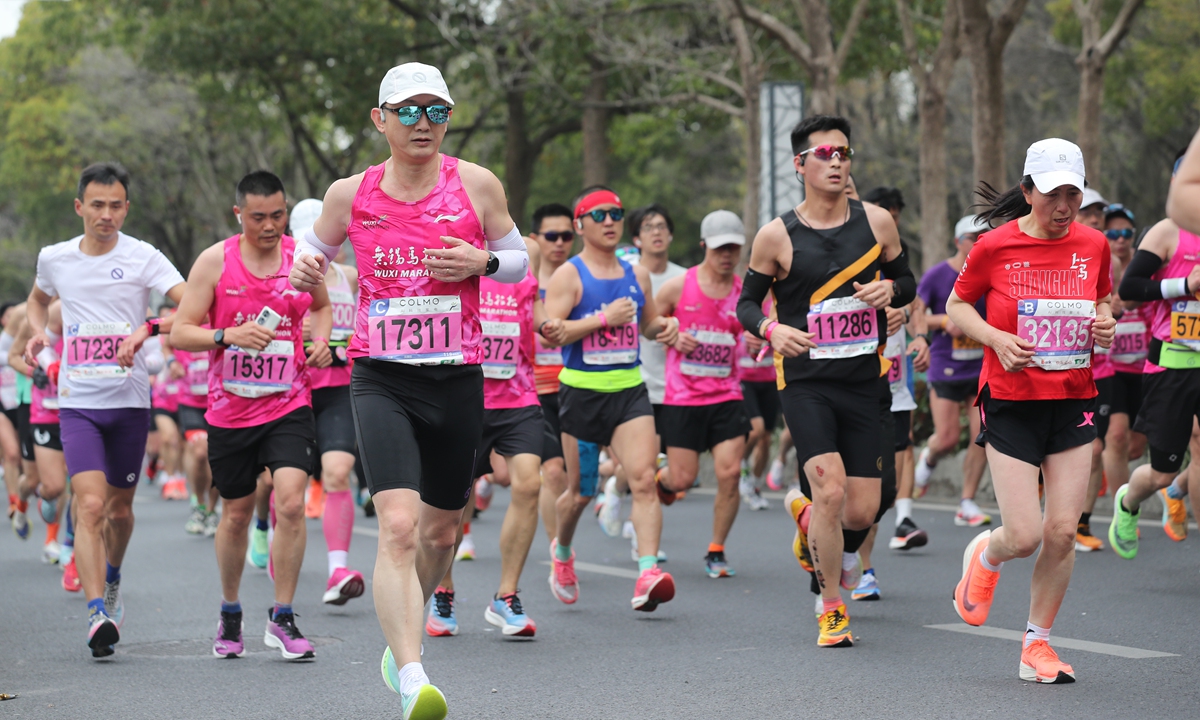
Participants compete in the Wuxi Marathon Photo:IC
The number of road race participants has hit new highs across China since March of this year. Nearly 500,000 runners took part in over 50 marathon races on the weekend of April 20, and more events are expected to fuel the marathon craze amid an evolving running trend.
In an effort to tighten up supervision of the athletics events and maintain fairplay in athletics competitions, the Chinese Athletics Association (CAA) released new regulations for national athletic event discipline management through its official Weibo account on Tuesday.
The regulations came after an incident at Beijing Half Marathon sparked uproar last week. On Friday, He Jie, winner of the event, and three African pace setters who finished as runners-up, were all stripped of their awards, medals and prize for violating the rules of the competition.
While event organizers are vying to entice maximum participation with their packages of benefits, ensuring a safe, fair, and orderly competition environment is key to maintain the vitality and passion for road races.
Given the abundant choices of current road races across the country, runners have encountered “sweet dilemmas” when making decisions. About 25,000 people participated to the Qingdao Marathon in East China’s Shandong Province, while the Shanghai Half Marathon, one of the World Athletics Gold Label Road Races, saw 15,000 participants on April 21.
The Wuxi Marathon in East China’s Jiangsu Province held on March 24 saw a record registration number of over 260,000 people. During the race, He Jie broke the men’s national marathon record with a time of 2 hours, 6 minutes, and 57 seconds.
Whether it is in large cities such as Beijing and Shanghai, or in smaller cities such as Wuxi and Pu’er in Southwest China’s Yunnan Province, the abundance of running events reflects people’s constantly increasing health awareness and marathons have become a fresh catalyst to boost a city’s cultural and economic development.
The Guilin Marathon in South China’s Guangxi Zhuang Autonomous Region, which concluded on March 17, generated a direct economic impact of 183 million yuan ($25.3 million), and it also stimulated related industries, resulting in an indirect economic impact of 296 million yuan for the region.
Participants in the Wuxi Marathon contributed to the economy, including dining, accommodation, transportation, and tourism, for a total of 282 million yuan — an increase of 45.5 percent compared to last year. During the 2024 Pukou Marathon, also in Jiangsu Province, the entire district hosted 489,000 visitors and achieved a tourism-related consumption of 360 million yuan.
Leveraging marathon events, many cities are blending their indigenous culture and tourism attractions with meticulously planned race routes, creating a fresh avenue to exhibit the allure of their city. This transforms marathons into immersive journeys, offering participants a profound exploration of the city’s landscape.
In addition, moderate temperatures in spring and the new regulations released by the CAA have also contributed to the recent national marathon craze.
For most runners, the suitable temperature range for running is typically between 5°C and 15°C. In late April, temperatures across the country are generally cooler compared to mid-May, making it a preferable choice for more events to be held in April.
According to the “Chinese Athletics Association Road Race Event Certification Management Measures,” which will be effective starting from April 30, marathon event organizers must submit the application to the CAA’s road race event certification system at least 90 days in advance. Additionally, the same event operator cannot apply to host more than two certified events within 14 consecutive days, and there must be an interval of at least 8 days between the two events.
Maintaining high standards of safety, fairness, and orderliness enhances the reputation and credibility of the event, which will attract even more participants, sponsors, and spectators. Indeed, a successful road race not only prioritizes the well-being of participants but also upholds the integrity of the sport, and contributes to a positive experience for all stakeholders involved.
According to the 2023 Blue Book of China Road Running Events released by the CAA on March 22, a total of 699 road running events were held nationwide that year, counting over 6 million participants.
By 2025, the number of domestic road running and related sports events is estimated to increase to 2,500, with the total number of marathon participants reaching 10 million, the CAA estimated.
The author is a reporter with the Global Times. [email protected]
